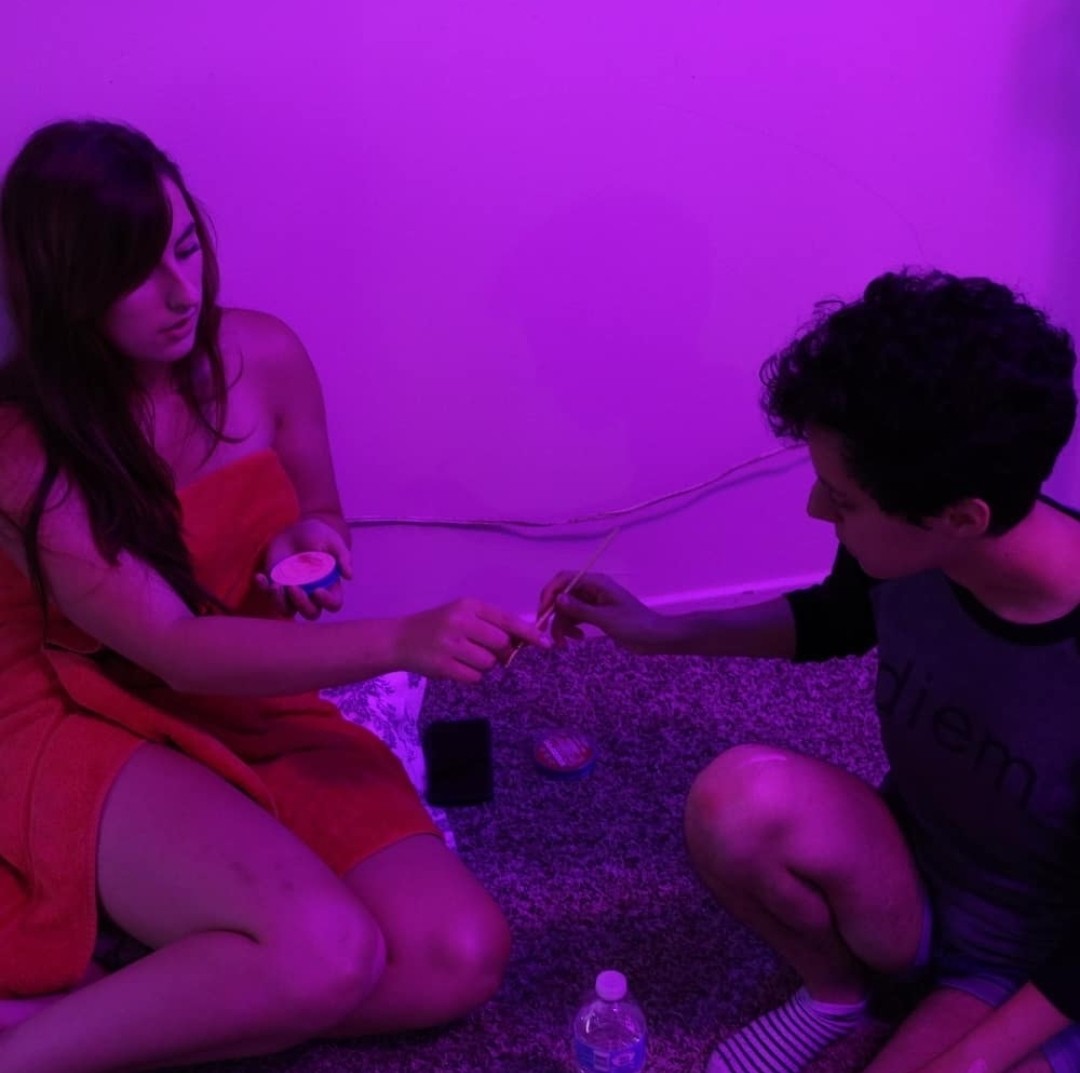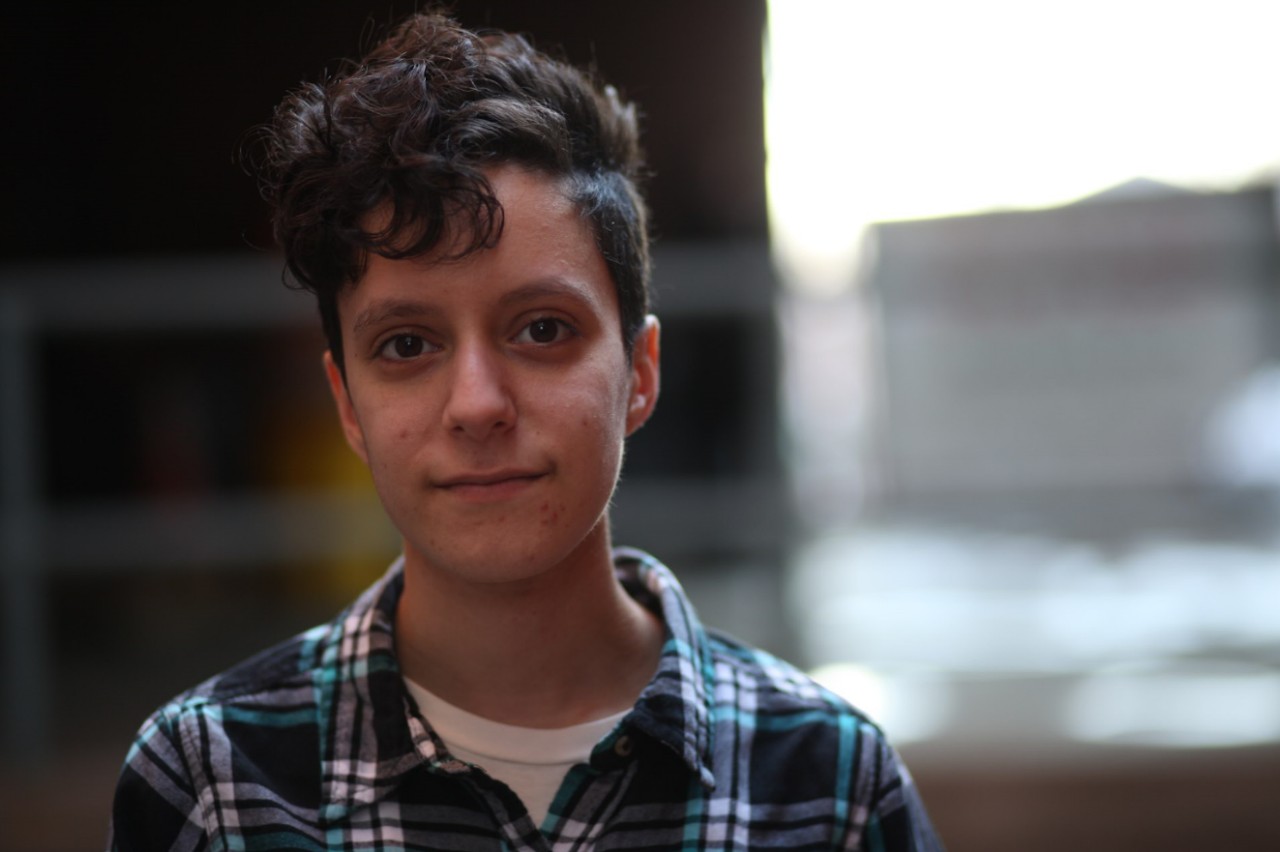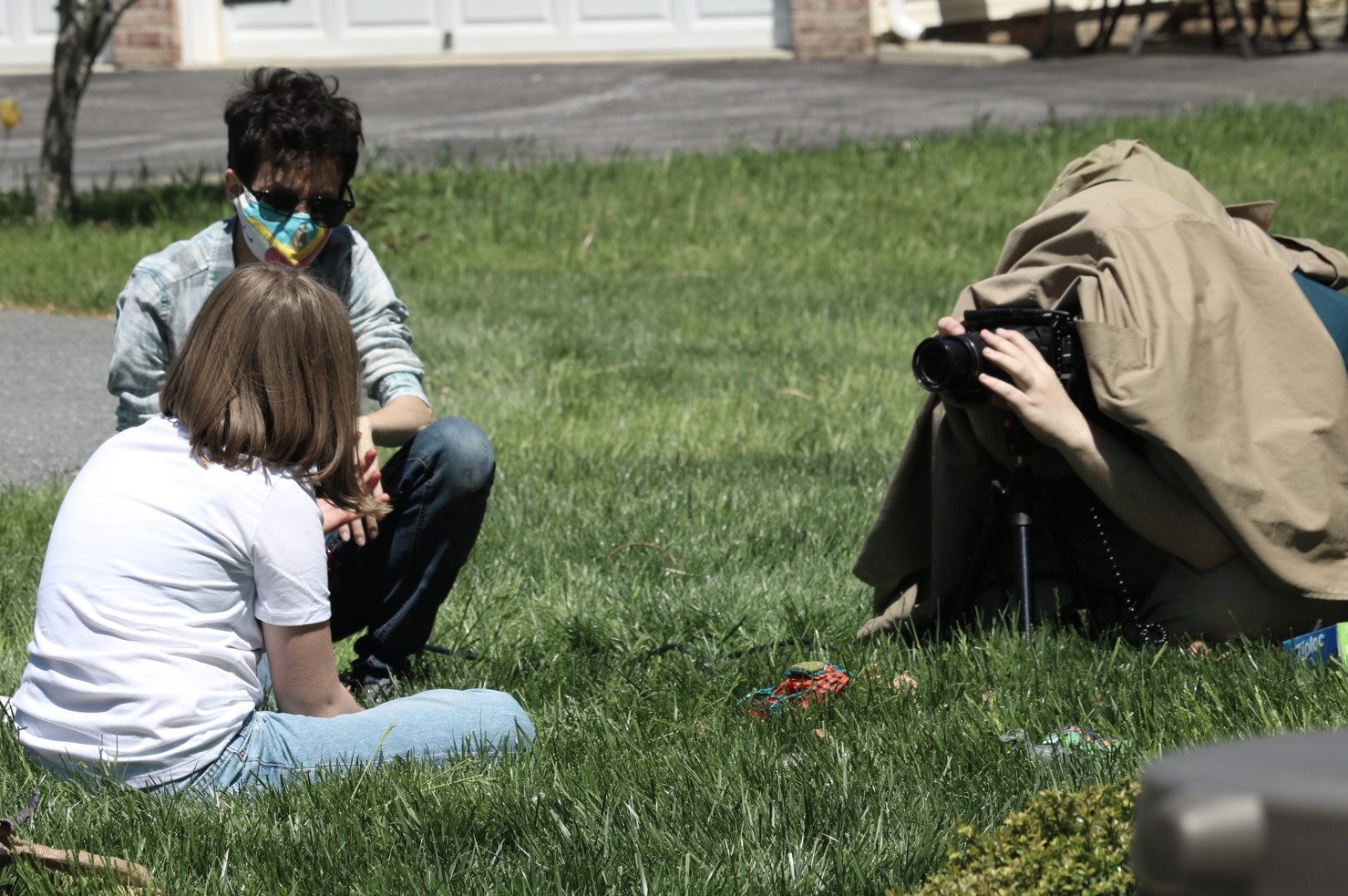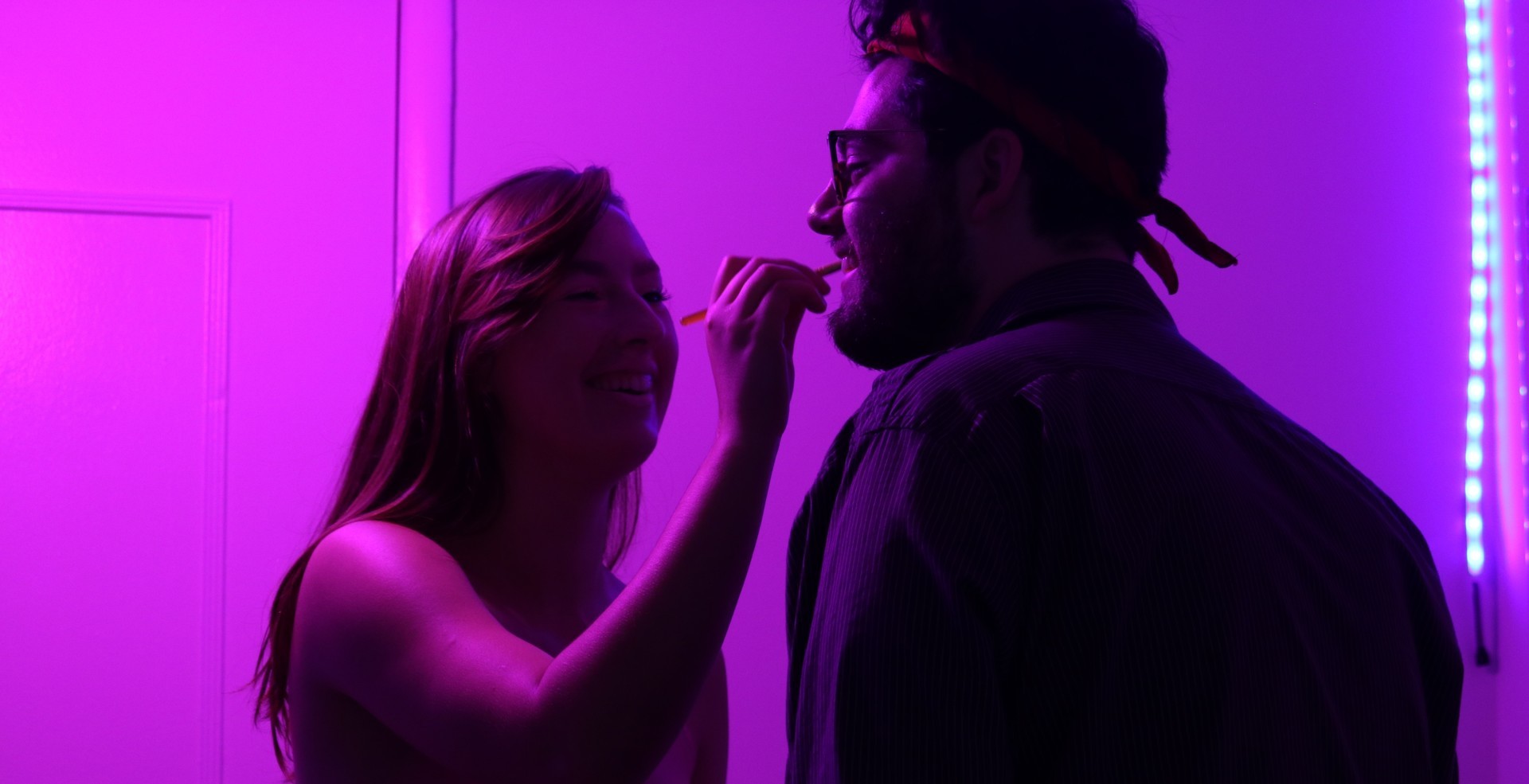We’re excited to introduce you to the always interesting and insightful Jenna Cipolloni. We hope you’ll enjoy our conversation with Jenna below.
Jenna, thanks for taking the time to share your stories with us today Can you talk to us about a project that’s meant a lot to you?
The most meaningful project I’ve worked on so far is my first short film I directed under my company, titled “Concealer.” It’s an expression of my feelings about being socialized into a feminine role and being told that my body is inherently obscene and impermissible through no decision of my own; being pushed into these feminine standards against my will into a culture that tells me that the feminized body is inappropriate by nature and must be altered in order to be socially acceptable, whether that change be aesthetic or something deeper.
Concealer was a collaborative effort and could only exist with the help of some friends dedicated to the craft. It was the first film I directed that had any sort of cinematic look. The film’s director of photography doubled as editor and composer having experience in those fields, and our lead actor is a performance artist who’s also done work about nudity and censorship, so both their contribution was immeasurable.
It’s still very much an amateur film, but it’s something I’m proud to have as my premiere, and it attests to the type of art I want to make: ideas that can be told in a compelling way with extremely limited resources that still gets the audience to think about something, particularly when done in collaboration.

Jenna, love having you share your insights with us. Before we ask you more questions, maybe you can take a moment to introduce yourself to our readers who might have missed our earlier conversations?
I’m a Maryland-based writer and filmmaker. I studied film at Towson University and have worked various media jobs since. The type of work I create is informed by our societal issues and my place in them. My favorite art pieces are ones that help me quantify the real world and that deliver ideas that come up in real-life conversations, so I want my art to do the same for others. This also comes through with the way I make art–informed by the real world through heavy collaboration. Some of the best work I’ve made has been with bare-bones resources that have only come to fruition due to the contribution from friends and colleagues. I have a big place in my heart for people, places, and new experiences, so it makes sense that my film was the path I ended up on since it’s an art form that sort of sits at the intersection of all those things.
I’ve been making movies with my friends since middle school, but my career has only recently started to ramp up. The last film I directed was called “Concealer,” an expression of my angst about being pushed into feminine expectations through no desire of my own. I recently started an production company with two friends of mine called Potential Strangers LLC, and we’re in the process of creating our first collective feature-length film with many more in the pipeline.
Aside from film, I also write. I recently self-published a poetry zine called “School Nights” and I’m currently working on a few collections of short stories and poems.

Are there any books, videos or other content that you feel have meaningfully impacted your thinking?
Bo Burnham’s special “Make Happy” was a huge influence to how I decided I want to live out my artistic career. I watched it when I first got to college, when I’d intended on getting a steady marketing job and make films on the side. The special resonated me as a criticism of mass media with a note of hypocrisy as someone who still benefits from taking part of it. As I went further into college and learned more about how full-time media fields operated, I became more and more averse to the entertainment industry and related fields such as advertising.
Soon, both corporate video AND Hollywood seemed unappealing to me, as each sounded equally stifling, discouraging to creativity, and harmful to viewers. Bo Burnham’s special remarked on the desires that social media companies and movies manufacture to exploit young people’s insecurities and views of themselves, where people are made to feel that they need to perform all the time in our societal panopticon, and ending with the encouragement (at least in my interpretation) that people should be allowed to exist without feeling the need to constantly perform, culminating in the line, “If you can live your life without an audience, you should do it.”
Bo Burnham has addressed these ideas in his other works, and he mentioned in one podcast interview (that I unfortunately don’t remember the tile of) that if you make good work, people will follow, and emphasizing the idea that artists should focus more on their art rather than the reception to it. These were all remarkably important philosophies for me to hear as a student, and ideas I still hold close today.
While I do want my work to be seen and appreciated, and while I do want to be viewed as an artist who creates good work, I’m ultimately unconcerned about garnering fame for the sole purpose of maximizing viewership. I don’t really want to play the game by starting a social media campaign or studying market trends, and I have such strong moral reservations about advertising that I’m still towing the line of wondering how I can earn money as an artist without making my art less accessible by restricting it behind paywalls. But it’s something I find important to think about, and Bo Burnham has been incredibly influential in these thoughts.

What do you find most rewarding about being a creative?
For me, the most rewarding part about being an artist is creating stuff that people enjoy–or, sometimes in the right circumstances, creating something that people dislike.
The most gratifying part of the artistic process is finishing something and being satisfied with the result, which can be moments few and far between. I had some English teachers in high school who were immensely supportive of my creative work, and I desperately tried to impress them with my writing assignments–so when I’d show them completed art when I graduated, or even snippets of a writing pieces I was still working on, it was all worth the sweat and tears to get positive feedback of the finished result. My favorite part of the process was finally getting that validation that I made something good and enjoyable to people I admired. Showing my art to my friends and people who support me is a tremendous feeling, and it drives me to be better with each project.
On the flip side, I do try to ruffle some feathers with my work. I aim to create art that disrupts social norms and points out flaws in our systems, so if someone who wouldn’t normally support my work dislikes it, I feel as though I’ve succeeded in my message and target audience.
On the other flip side, showing art to people who support me who DON’T enjoy it is a terrible feeling… but one that every artist understands!

Contact Info:
- Website: https://www.jennacipolloni.com/
- Instagram: https://www.instagram.com/jennacipolloni/
- Linkedin: https://www.linkedin.com/in/jenna-cipolloni-a9368112a/
- Youtube: https://www.youtube.com/@jennacipolloni
- Other: https://ko-fi.com/jennacipolloni
Image Credits
Nathan Reuschlein Brooks Verno Chris Hartlove


